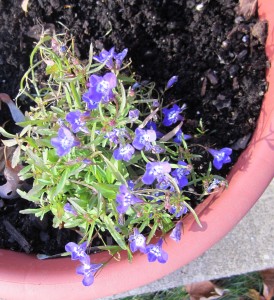
Andrej Rublëv – Trinity
First published in The Catholic Times, June 15, 2014 Volume 63:34
Easter season is over and we now begin the long liturgical period of Ordinary Time. This Sunday we celebrate Trinity Sunday. I’d like to reflect on this mystery by pondering Jesus’ words from last week’s readings. They speak of the coming of the Holy Spirit and the unity of all three Persons of the Trinity as well as our inclusion in Divine Life shared.
Last Thursday, in a reading from John, Jesus proclaims his heart’s desire in prayer. Approaching death, his thoughts turn to those who follow him. He doesn’t wish for earthly power or anything for himself, but desires that all those who believe in him may share in the union that he shares with the One who sent him. It is a prayer of love. A radical love.
Throughout his life, Jesus showed his disciples what that love looked like. It was washing feet. It was taking care of others. He told Peter, “Feed my sheep.” It was speaking the truth regardless of consequences. It was being with the outcast and those on the fringes of society. It was living simply with passion for the kingdom rather than for riches. While the words of that gospel are beautifully poetic, they demand sacrifice.
Jesus prays that all will come to perfection “as one,” not as individuals. We come to healing and salvation together with one another and with God. Our journey is not about personal salvation; it’s about the salvation of the world. Closing ourselves off from the problems of our world and pursing our own “holiness” would be easier. Leaving the messiness behind is tempting, whether violence, poverty, oppression, or care of the planet. Jesus tells us that’s not how it’s done.
I’m often overwhelmed by the challenges facing us and our world today. What can one person do? Is Jesus’ prayer too much to hope for? If we were on our own, the answer surely would be “Yes,” but he reassures us. We are not alone. We have Divine Love moving within us. “…I made known to them your name and I will make it known, that the love with which you loved me may be in them and I in them.”
On Pentecost we celebrated the coming of that Love, the Spirit. In that day’s readings Paul’s letter the Corinthians states that though we are many, we are one. The gifts of the Spirit are unique in each of us, but they are given for the same purpose: “To each individual the manifestation of the Spirit is given for some benefit.” When the challenges of our times overwhelm, we do well to remember this. Each one’s actions are joined with the actions of all others. God’s work is done by all together, healing all by the work God in all.
Sometimes what we do seems to make little difference whether at home, at work, or in the larger community, but we don’t see the whole picture. In spring, we plant seeds. That’s our part. What nourishes them and brings them to maturity bearing fruit, that’s Another’s work. We put small dormant kernels of life into dark earth, wait, and trust. Our call in the world is similar. We do our best and trust that God, gathering all our efforts, will do the rest.
The other two Pentecost readings gave us different accounts of the coming of the Spirit. One, from Acts, is dramatic: a howling wind driving through the house, tongues of fire descending. The other is quieter: Jesus came through locked doors to be with his disciples who were gathered in fear. “Peace be with you,” he said, and he breathed on them. The Spirit came with breath. Either way, the message is the same: The Living God is within us, the source of our gifts and our call as well as the power to be faithful to them.
Today’s feast celebrates the mystery of our God who is Relationship: Three persons dwelling in and with the other, and as Jesus’ prayer reveals, in us. The famous icon, “Trinity,” written by 15th century Russian painter, Andrei Rubelev, while picturing three angels has been interpreted by many to represent the Holy Trinity. The figures are gathered around a table, leaving open the place facing the one who views the icon. Perhaps it is an invitation to take our seat at table with the Holy Mystery and join in the Love and work of God.
© 2014 Mary van Balen






 Originally published in The Catholic Times, March 9, 2014 issue
Originally published in The Catholic Times, March 9, 2014 issue





 Originally published in The Catholic Times, Oct. 13, 2009
Originally published in The Catholic Times, Oct. 13, 2009

